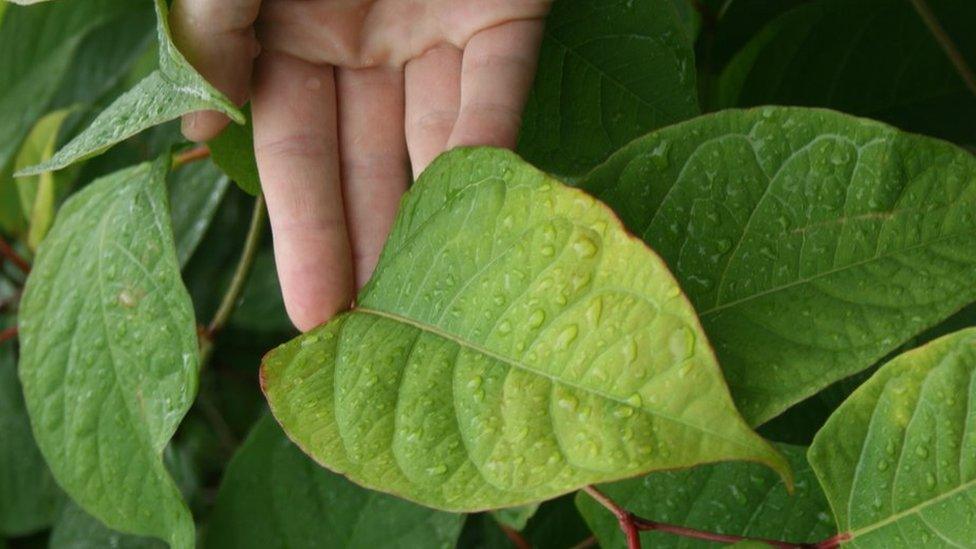Japanese knotweed: Llanelli residents take action as 'forest' grows
- Published
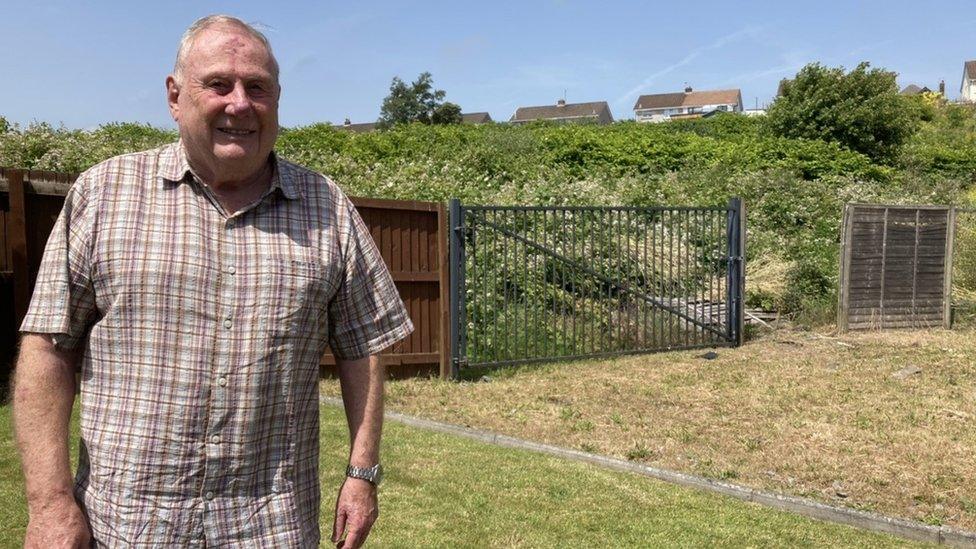
Japanese knotweed is encroaching on the garden of Stuart Hopkins Llanelli home
Neighbours who are fed up with Japanese knotweed invading their gardens are taking matters into their own hands.
The invasive plant because has been creeping closer to homes in Llanelli, Carmarthenshire.
"Residents are spraying. People have tried to sell their houses because of it," said Gareth Bowen, who called on the council to take more action.
Carmarthenshire council said they didn't have a record of complaints or requests to treat the land in question.
Local resident Vicky Honeybun said the knotweed had climbed up her back garden wall at times.
"Residents have to deal with the consequences of it," she said.
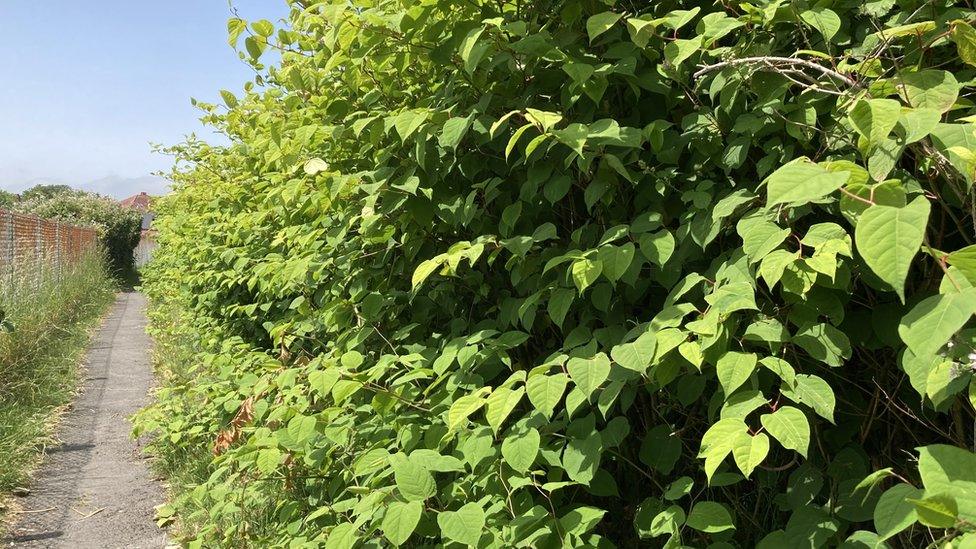
Japanese knotweed crowds the footpath leading to Heol Goffa, Llanelli
Around a third of the land affected is unregistered, according to Land Registry records. The remaining land is privately owned.
It is not clear when the knotweed took root on the land.
Mr Bowen's house is one of several backing onto the affected land.
"The knotweed is getting worse, especially up at the top end," he added.
He said the land was landscaped at one point and looked "nice and tidy", and wondered if contaminated soil tipped there in the past was the source of the plant's presence.
Official advice is not to spray the plant it without the relevant skills and experience.
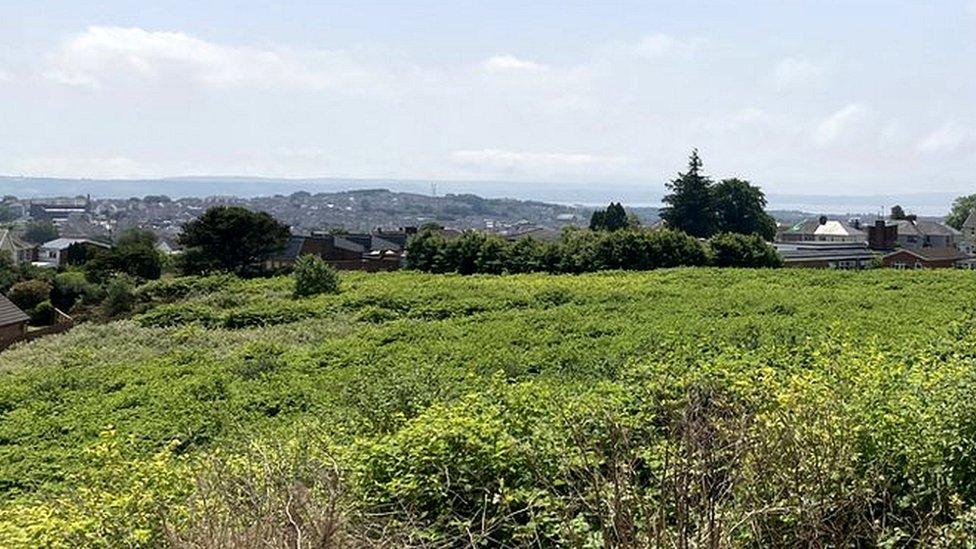
Japanese knotweed dominates the plant life on this chunk of land in Llanelli
A council spokeswoman said anyone who saw Japanese knotweed being spread should contact their local police station because knotweed offences under the Wildlife and Countryside Act were enforced by the police.
She said the council's grounds division didn't have a record of complaints relating to knotweed or requests for treatment for the land in question.
It is an offence under the 1981 Wildlife and Countryside Act to plant or cause invasive knotweed to grow in the wild. It is also an offence to dispose of knotweed with garden waste.

CHALLENGING MISCONCEPTIONS: Life in Britain’s biggest special school
BORN DEAF, RAISED HEARING: What it means to live in two different worlds

- Published9 December 2018
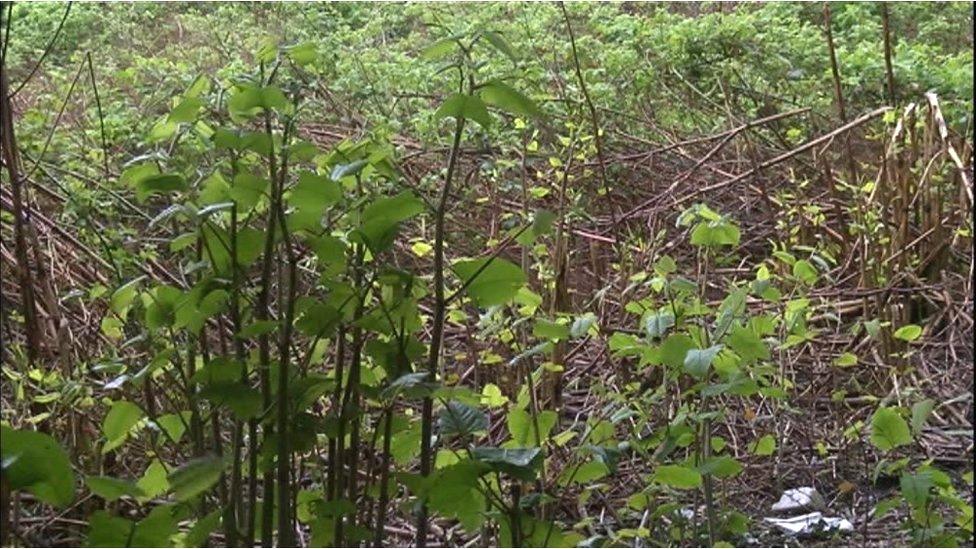
- Published6 December 2018
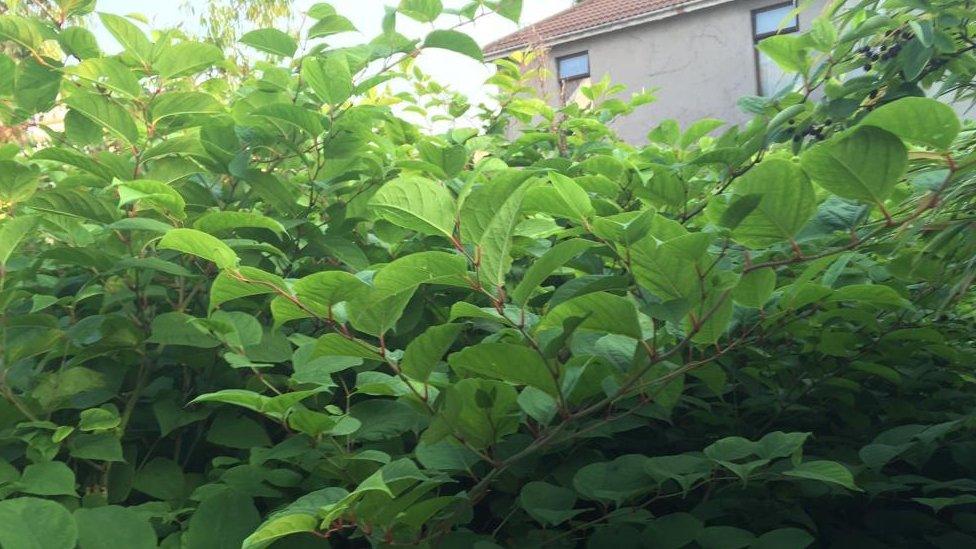
- Published14 November 2018
